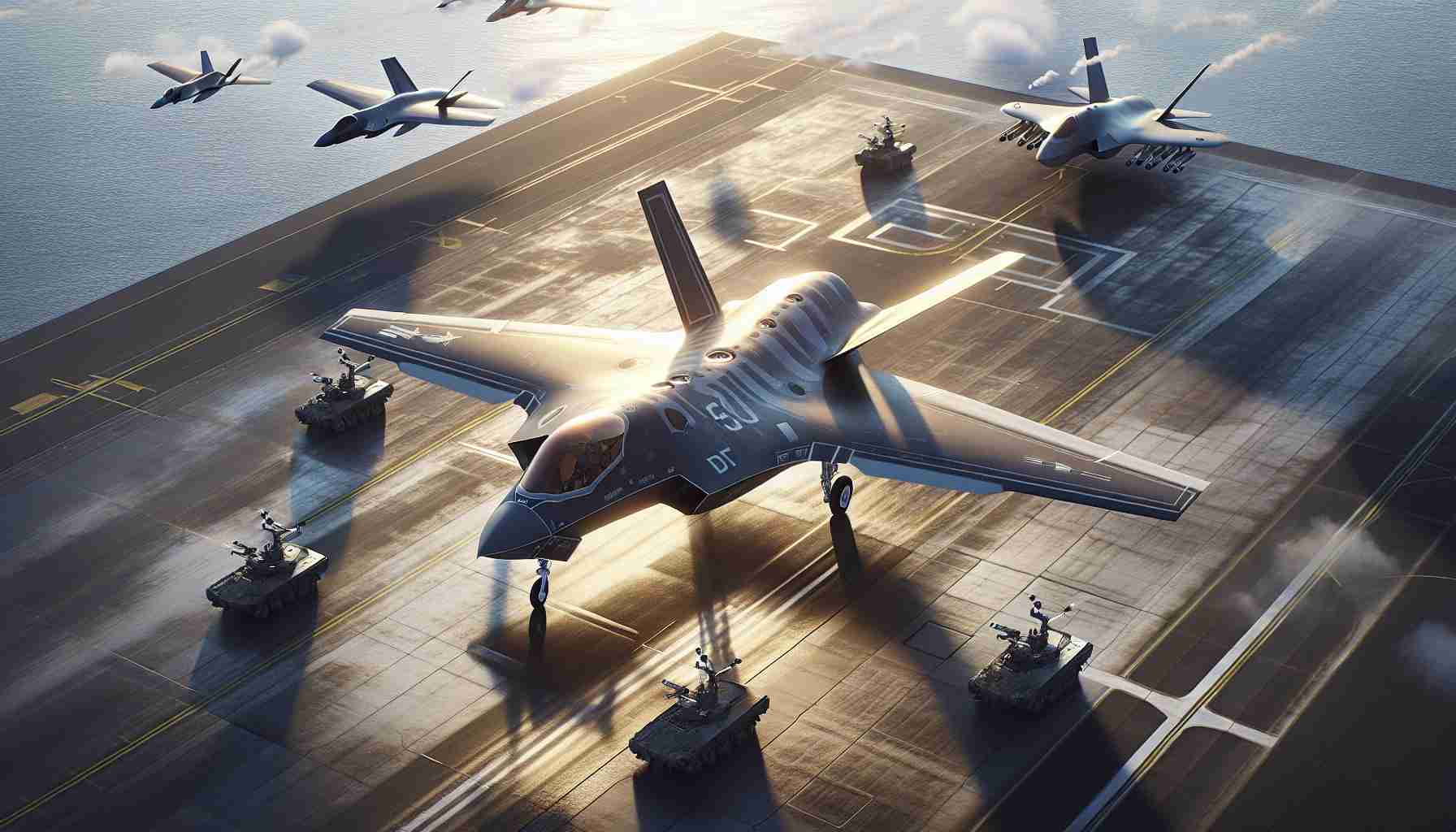The spotlight is on the F-35 fighter jet program as Elon Musk’s critical remarks have catapulted drone technology into the defense sector debate. In a social media post, Musk argued that piloted jets are an outdated method compared to drones. He emphasized that drones can perform similar military tasks without the limitations imposed by the presence of human pilots.
This conversation has caused tremors within the defense industry. Following Musk’s comments, stocks in Lockheed Martin, the company behind the F-35, dipped noticeably. Similarly, BAE Systems, a supplier of F-35 parts, experienced a financial hit due to looming uncertainties about the program’s future.
Despite Musk’s influential position in the current administration, defense experts suggest that the abrupt discontinuation of the F-35 program isn’t feasible, given the significant number of pending orders. They also question Musk’s claims, citing his history of provocative public statements.
The rise of unmanned aerial vehicles marks a pivotal point in military technology, with nations like Israel and Ukraine already implementing AI-powered drones in combat scenarios. With figures like Donald Trump Jr. joining the board of a US drone manufacturer and emphasizing the need to shift away from Chinese suppliers, the momentum towards drone technology appears undeniable.
Yet, there remains a contention between advocates of traditional military strategies and those pushing for a future dominated by drone warfare. While the debate continues, experts concede that a blend of advanced aircraft and drones will likely shape tomorrow’s military blueprint.
Elon Musk’s Comments Spark Debate on F-35 Program Viability and the Future of Drone Technology
The discussion around future warfare tactics has been reignited, thanks to Elon Musk’s recent criticism of the F-35 fighter jet program in favor of drone technology. His social media commentary has shifted discussions within the defense sector, emphasizing a move towards unmanned aerial vehicles (UAVs) which are heralded for their advanced capabilities and operational flexibility without the constraints faced by piloted aircraft.
Insights into the Drone Technology Revolution
Elon Musk’s advocacy for drones highlights a major trend in military innovation. Unmanned drones have risen to prominence due to their ability to perform complex tasks autonomously, leveraging technologies such as artificial intelligence (AI) for enhanced decision-making in combat situations. Countries like Israel and Ukraine have already started to implement AI-driven drones effectively, setting a precedent for others to follow.
Market Reactions and Industry Impact
Musk’s remarks had immediate repercussions in the stock market, with significant companies like Lockheed Martin and BAE Systems experiencing declines. This volatility underscores the sensitivity of defense stocks to evolving technology trends and public perceptions. Companies facing this transition may need to adapt by investing in or developing their drone technologies to stay relevant in the changing landscape.
Balancing Traditional and Modern Warfare Approaches
Despite the push for technological advancement, experts in the field defend the ongoing utility and necessity of traditional fighter jets. The F-35, with a substantial backlog of orders, still holds a crucial place in defense strategies. The consensus among military analysts suggests that a hybrid approach combining both manned and unmanned systems might dominate future military operations, ensuring versatility and comprehensive defense capabilities.
Strategic Shifts: Reducing Dependence on Foreign Supply Chains
Further emphasizing the shift towards drones, notable figures like Donald Trump Jr. are becoming involved with U.S. drone manufacturing companies, promoting a strategy that reduces reliance on Chinese suppliers. This move indicates both a tactical and economic impetus to bolster domestic drone production, aligning with broader national security objectives.
Drone Technology: Future Prospects and Innovations
The evolution of drone technology involves improvements in autonomy, endurance, stealth, and payload capabilities. These advancements could revolutionize surveillance, reconnaissance, and direct combat roles. As innovation continues, more nations will likely integrate drones into their defense arsenals, pushing traditional aerospace companies to innovate and expand their technological offerings to secure future military contracts.
In summary, while the debate between traditional and modern warfare continues, the undeniable progress in drone technology suggests a future where both systems coexist and complement each other. For more information on cutting-edge drone technology and defense innovations, visit Lockheed Martin and BAE Systems.







